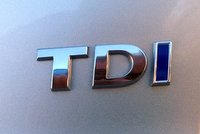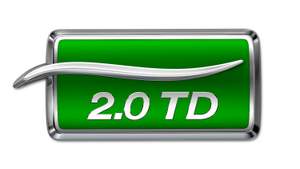What Clean Diesel Is & What It Is Not
As I write this, the public Volkswagen TDI debacle is just beginning. The federal Environmental Protection Agency and California’s Air Resources Board have presented their cases that Volkswagen AG (the parent of Volkswagen and Audi, among others) installed software that defeated the purpose of its emissions control equipment except when it was being tested for emissions. The ramifications remain to be seen, but certainly involve some kind of emissions updates to almost 500,000 2009-15 TDIs now on the road. It can be expected that a hefty fine will be levied against VW, which is the world’s largest automaker.

It also can be expected that the term “clean diesel” will be tarnished, since that is one that VW and other automakers have taken great pains to reinforce for the past several years. That is where Clean Fleet Report has its biggest concern. Volkswagen clean diesel may have become an oxymoron, but we do not believe that is a broad brush that should paint all diesels. Maybe even VW diesels. After all, with the software’s permission, the vehicles did meet the stringent emissions standards of the U.S., which were set so diesels would be available to drivers in all 50 states (California regulations had kept them out for several years). The problem, of course, is that they did not meet those standards in normal driving modes, instead emitting 10-40 times the regulated limit.
At Clean Fleet Report we believe diesels can be clean, both in the certifications submitted to the regulatory agencies and in their daily operation. We also believe that any compromises in performance or fuel economy due to meeting emissions regulations are something consumers will deal with. For those of us old enough to remember diesel’s (which was not clean diesel) first foray into the U.S. market in the 1980s, compromises were part of the bargain. Maybe too big of a part of the bargain. Of course, gasoline cars of the time were far from no-compromise vehicles as well. We’ve come a long way since then and have every right to expect cars and trucks that deliver on all fronts–fuel economy, performance and emissions. Not all technologies are going to be equal and all have a place. Electric vehicles, as wonderful as they are, are far from zero emission vehicles when their electricity comes from coal, to give one example. Fuel cell electric cars offer a great replacement for our expectations of a gasoline/diesel vehicle replacement, until it comes time to find a refueling station, to offer another. That doesn’t make them bad technologies.
We’ll have more to say once we have more information on both the research into what happened, what will be done to correct the vehicles’ software and what impact this might have on our earlier

impressions. We will probably reserve judgement on any public pronouncements until our staff has a chance to drive the updated cars and calibrate our response. Suffice it to say, from my personal perspective, slightly less responsive performance and a slightly less fuel efficient vehicle will not change my overall impression of the value of a compression ignition engine. But my feelings of trust of Volkswagen may take longer to heal.
More to come.
Related Stories You Might Enjoy:
Clean Diesel vs. Hybrid: Which Is Best For You?
Road Test: 2014 Chevrolet Cruze Clean Turbodiesel
Road Test: 2015 Volkswagen Golf TDI
Road Test: 2015 Volkswagen Jetta TDI
Disclosure
Clean Fleet Report staff have worked for in the past and retain close relations with Volkswagen and other companies and organizations in the diesel industry. The views expressed here are the personal ones of the author related to this issue.

No diesel is really clean. Some are clean enough to barely pass the emissions tests without cheating. A 2010 Prius produces .002 – .003 g/mile of NOx [CARB]. A new diesel meeting the latest Euro 6 emissions rules is allowed to produce .128 g/mile. The Prius produces .04 g/mile of CO. A Euro 6 diesel is allowed .8 g/mile. The Prius also produces less greenhouse gases than a comparable diesel. A Prius is much more reliable than any VW [tradeinqualityindex.com, truedelta.com]. The Prius is also lower maintenance, for example brake pads last much longer thanks to regenerative braking. No AdBlue or particulate filter needed in a Prius. Diesels have no place in a “Clean Fleet”.
@Peter Wilkins,
I’ve got to really disagree with you on that score. If you look at modern emissions technology, many of the diesels are coming in with lower PM and NOx than some of the direct injection gasoline engines–and still delivering better fuel economy. If you want to consider GHG emissions, look at the full lifecyle numbers and you’ll find diesels can turn in lower g/mi than EVs pulling their electricity from an old coal-fired plant. It’s not a knock on the alternatives, just saying diesel is clean and deserves to be a part of the mix. The VW story is a software issue not a diesel issue. –ed.
@Peter Wilkins,
One further thought on your Prius comparison. Those look like EU certification numbers, where we look at the US ones here as well as real-world numbers for fuel economy and they are much closer. Another thing to remember with the Prius (not a bad car at all–we’ve reviewed them as well) is it still is using fossil fuel, albeit quite efficiently. We welcome the dialogue, but plan to hold firm as a home for all of the cleanest automotive technologies. –ed.